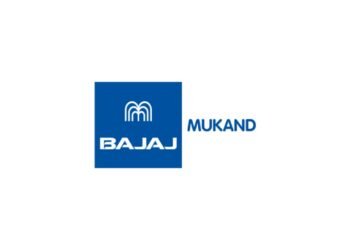Amit Aggarwal Arrested for Orchestrating Complex Web of Fraudulent Entities in Major Financial Scam
NEW DELHI (India CSR): In a significant blow to international financial crime, India’s Enforcement Directorate (ED) arrested Amit Aggarwal on August 30, 2025, for allegedly masterminding a Rs 696.69 crore money laundering operation that funneled funds to Hong Kong and Singapore. The arrest, executed under the Prevention of Money Laundering Act (PMLA), follows a meticulous investigation triggered by a First Information Report (FIR) from the Delhi Police’s Economic Offences Wing. This high-profile case exposes a sophisticated network of shell companies and forged documents used to siphon off massive sums under the guise of legitimate trade, marking a critical step in India’s fight against illicit financial flows.
Unraveling a Complex Money Laundering Network
The ED’s investigation centers on Kinzal Freight Forwarding (OPC) Private Limited and its associates, accused of orchestrating a fraudulent scheme to transfer ₹696.69 crore abroad. The agency alleges that the funds were remitted to Hong Kong and Singapore under false pretenses, primarily as payments for nonexistent imports of goods and services or inflated freight charges. This deception not only drained India’s foreign exchange reserves but also highlighted vulnerabilities in cross-border financial oversight.
The operation relied on a labyrinth of shell entities created specifically to facilitate these illicit transactions. These entities, often registered with forged identity documents, opened bank accounts to channel funds. The ED uncovered that the accused misused the credentials of Chartered Accountant Vikash Mohpal, employing fake Form 15 CB certificates—required under India’s Income Tax Rules for payments to non-residents—to legitimize the transfers. This misuse of professional credentials underscores the audacity of the scheme, which exploited regulatory gaps to evade scrutiny.
***
Amit Aggarwal’s Central Role in the Scam
Amit Aggarwal emerged as a key figure in this elaborate fraud. According to the ED, he played a pivotal role in establishing the network of fraudulent entities, using falsified identities to set up bank accounts. These accounts were then used to funnel cash through credit entries, which were exchanged for outward remittances disguised as legitimate business transactions. The agency’s findings reveal a pattern of cash-based layering, where funds were moved through multiple accounts to obscure their origins before being sent overseas.
Following his arrest, a special PMLA court remanded Aggarwal to ED custody for seven days, allowing investigators to delve deeper into his network and financial dealings. The ED’s swift action reflects its growing emphasis on dismantling complex money laundering operations, particularly those with international ramifications. Aggarwal’s case is seen as a test of the agency’s ability to tackle sophisticated financial crimes that exploit global trade systems.
***
The Modus Operandi: A Blueprint for Deception
The ED’s probe revealed a meticulously planned operation that leveraged forged documents, including airway bills and invoices, to create the illusion of legitimate trade. These documents were used to justify massive remittances to Hong Kong and Singapore, despite no corresponding goods or services being delivered to India. This tactic, known as trade-based money laundering, is increasingly common in global financial crime, as it exploits the complexity of international trade to mask illicit fund flows.
The agency’s findings also point to the use of cash-based transactions to fund these accounts, with credit entries arranged through a web of intermediary entities. This layering process made it difficult to trace the money back to its source, a hallmark of advanced money laundering schemes. By alerting Interpol and securing a Purple Notice—a mechanism to share information on new criminal methods—the ED has signaled its intent to collaborate globally to curb such practices. This move could prompt tighter regulations in jurisdictions like Hong Kong and Singapore, known hubs for financial transactions.
***
Broader Implications for India’s Financial Security
This case is part of a broader crackdown by the ED on illegal financial flows, with recent actions targeting assets worth ₹16,000 crore across 16 countries in various high-profile cases. The ₹696.69 crore scam underscores the challenges of policing trade-based money laundering, which often involves shell companies and forged documents to bypass banking safeguards. India’s foreign exchange reserves, critical for economic stability, face significant risks from such schemes, as they drain national wealth and undermine trust in financial systems.
The ED’s collaboration with the Delhi Police and its use of FIRs to initiate probes highlight the importance of inter-agency coordination in tackling financial crime. The agency’s recent efforts, including multi-state raids and arrests in cases involving illegal betting apps and crypto fraud, demonstrate a proactive stance. For instance, in a related case, the ED arrested Jaspreet Singh Bagga for his role in a ₹4,817 crore remittance scheme involving under-invoiced imports from China and Hong Kong, indicating a pattern of exploiting trade routes for laundering.
Global Context: Hong Kong and Singapore’s Role
Hong Kong and Singapore, as major financial hubs, are frequent destinations for illicit funds due to their robust banking systems and high volume of international trade. In 2024, Hong Kong’s authorities reported a 2.3-fold increase in money laundering prosecutions, with enhanced sentencing for mule account holders, signaling a tougher stance. Similarly, Singapore has faced its own challenges, with a $3 billion money laundering case in 2023 leading to penalties for nine financial institutions. These developments suggest that India’s ED is part of a global push to strengthen anti-money laundering (AML) frameworks, particularly in jurisdictions vulnerable to such schemes.
The ED’s issuance of a Purple Notice through Interpol is a strategic move to alert other nations to this unique modus operandi. By sharing intelligence on the use of forged documents and shell entities, India aims to disrupt similar schemes worldwide. This case could also prompt tighter scrutiny of trade financing in Hong Kong and Singapore, potentially leading to reforms in how banks verify import-related transactions.
***
Challenges and Future Outlook
While the ED’s arrest of Aggarwal is a significant victory, challenges remain in dismantling such networks. The use of shell companies and forged identities complicates investigations, requiring advanced forensic accounting and international cooperation. The ED’s evolving powers, as noted by the Madras High Court, reflect its growing capacity to tackle these issues, but gaps in banking oversight and cross-border regulation persist.
Looking ahead, the case could catalyze reforms in India’s financial regulatory framework, particularly in verifying trade documents and monitoring high-value remittances. The ED’s focus on restitution, as seen in a recent case where ₹289.54 crore in assets were returned to victims in a cooperative bank scam, suggests a dual approach of enforcement and recovery. As India prepares to post customs intelligence officers in Hong Kong and other hubs, its global reach in combating financial crime is expanding.
The arrest also raises questions about the role of professional credentials in financial fraud. The misuse of a chartered accountant’s details highlights the need for stricter oversight of certification processes, potentially leading to new guidelines for professionals in sensitive financial roles. With India’s economy projected to grow by 6.8% in 2025, according to IMF estimates, safeguarding financial integrity is critical to sustaining investor confidence and economic stability.
***
Public and Policy Response
The case has sparked public concern about the vulnerability of India’s financial systems to international fraud. Social media discussions on platforms like X emphasize the need for stronger banking regulations and penalties for complicit institutions. The ED’s high-profile actions, including this arrest, are seen as a deterrent, but experts argue that prevention requires systemic changes, such as real-time transaction monitoring and enhanced due diligence for cross-border payments.
As the ED continues its investigation, the focus will likely shift to identifying additional players in the network and recovering the laundered funds. The agency’s track record in attaching overseas assets, such as in the Sterling Biotech case where ₹9,778 crore in properties were seized, suggests that further actions could target assets in Hong Kong and Singapore. This case serves as a reminder of the ongoing battle against financial crime in a globalized economy, where borders are no barrier to illicit wealth.






















